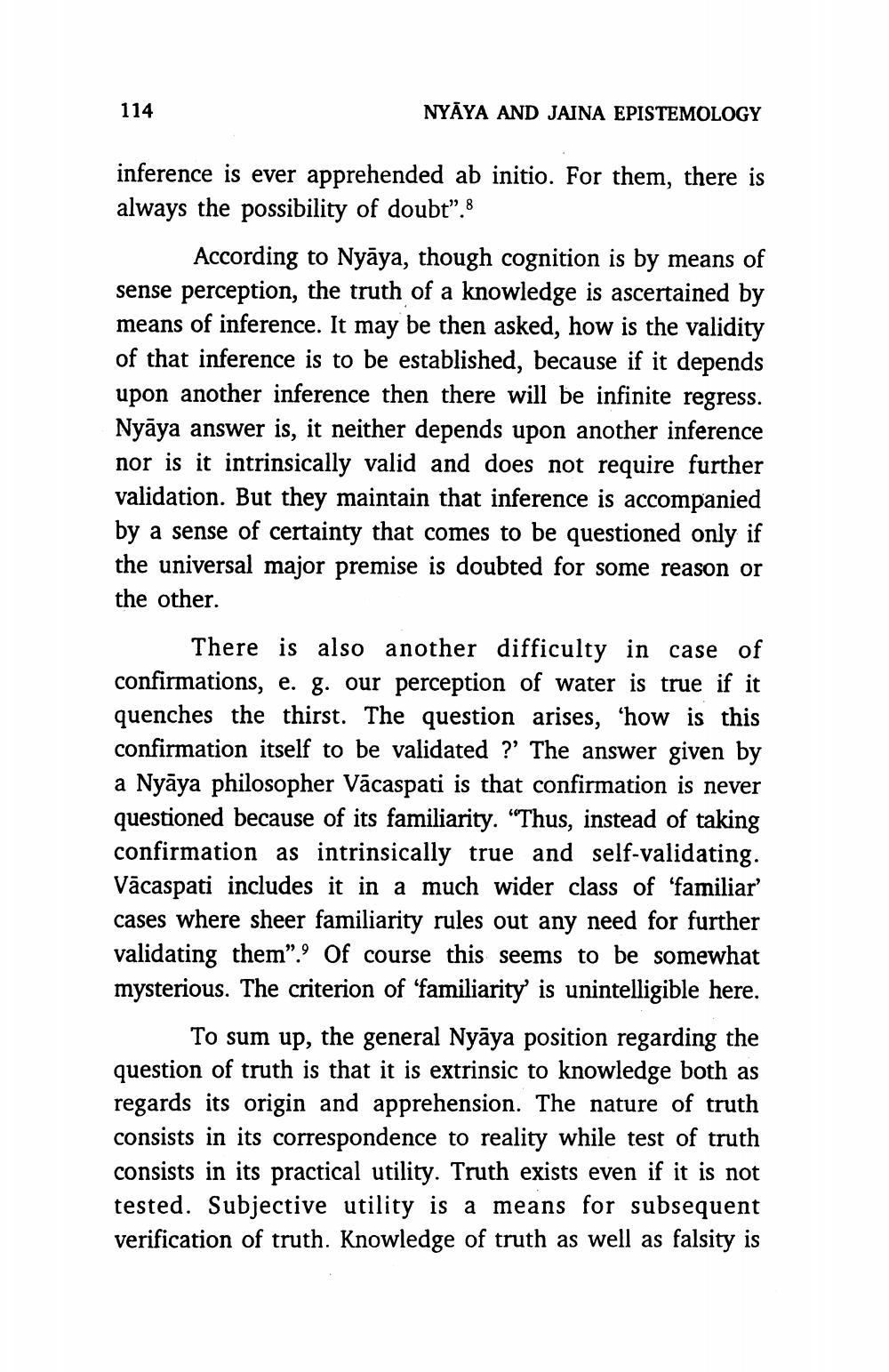________________
114
NYAYA AND JAINA EPISTEMOLOGY
inference is ever apprehended ab initio. For them, there is always the possibility of doubt". 8
According to Nyāya, though cognition is by means of sense perception, the truth of a knowledge is ascertained by means of inference. It may be then asked, how is the validity of that inference is to be established, because if it depends upon another inference then there will be infinite regress. Nyāya answer is, it neither depends upon another inference nor is it intrinsically valid and does not require further validation. But they maintain that inference is accompanied by a sense of certainty that comes to be questioned only if the universal major premise is doubted for some reason or the other.
There is also another difficulty in case of confirmations, e. g. our perception of water is true if it quenches the thirst. The question arises, 'how is this confirmation itself to be validated ?? The answer given by a Nyāya philosopher Vācaspati is that confirmation is never questioned because of its familiarity. "Thus, instead of taking confirmation as intrinsically true and self-validating. Vācaspati includes it in a much wider class of 'familiar cases where sheer familiarity rules out any need for further validating them”. Of course this seems to be somewhat mysterious. The criterion of 'familiarity is unintelligible here.
To sum up, the general Nyāya position regarding the question of truth is that it is extrinsic to knowledge both as regards its origin and apprehension. The nature of truth consists in its correspondence to reality while test of truth consists in its practical utility. Truth exists even if it is not tested. Subjective utility is a means for subsequent verification of truth. Knowledge of truth as well as falsity is




